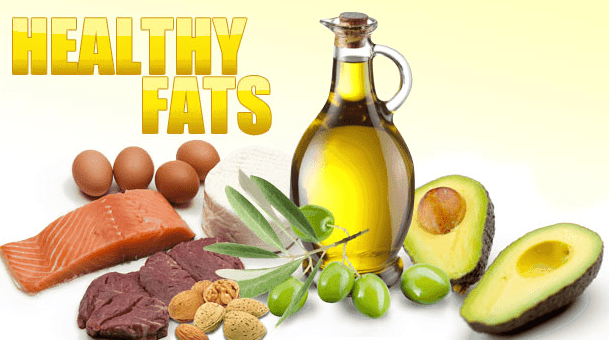The tables are finally starting to turn on the condemnation of saturated fats! For decades, it has been believed, that the reduction of saturated fats from our diets would lead to a decrease in heart disease, stroke and weight. However, it’s becoming more obvious, that this is not the case, as our satiating and flavour-filling macronutrient, was replaced with highly processed, highly refined and high in sugar substitutes. Causing the exact opposite, disease rates have been increasing, along with the waistlines of the population.
I hear the term ‘Bring back the fat!’ almost on a daily basis, so lets bring it back!

Lets quickly recap what lead to the fat fallacy:
It was the 1970s and a researcher by the name of Ancel Keys was trying to forge his career. He published a study known as The Seven Countries Study, the hypothesis being that the rate of coronary disease would vary in populations according to physical characteristics and lifestyle factors, in particular fat intake and serum cholesterol levels. The Seven Countries Study, supposedly, found an association between fat intake and coronary disease.
Keys however cherry-picked the information. He only used the results of seven of the actual twenty-two countries involved. He chose to use these results because they matched his preconceived conclusions that saturated fat was ‘bad’. As I said, and I emphasise, the study was actually based on twenty-two countries. What Keys did, was leave out the results from fifteen of the locations involved because they didn’t give him the results he wanted to find.
And so the low-fat era arrived on our doorstep. For the last forty years, doctors, nutritionists and dieticians have been preaching the same story, animal fats/saturated fats cause heart disease, which we now know is a BIG, FAT, JUICY LIE!
Lets look at why our bodies need fat:
Saturated fatty acids constitute at least 50 percent of your cell membranes. They promote stiffness and integrity.
They play a vital role in the health of your bones. For calcium to be effectively incorporated into your skeletal structure, at least 50 percent of your dietary fats should be saturated.
They lower Lp(a), a substance in your blood that indicates proneness to heart disease.
They protect your liver from alcohol and other toxins, such as Tylenol and other drugs.
They enhance your immune system.
They are needed for the proper utilization of essential fatty acids. Elongated omega-3 fats are better retained in your tissues when your diet is rich in saturated fats.
Saturated 18-carbon stearic acid and 16-carbon palmitic acid (which we get from eating saturated fat) are the preferred foods for your heart, which is why the fat around your heart muscle is highly saturated. Your heart draws on this reserve of fat in times of stress.
Short- and medium-chain saturated fatty acids, such as butter, full-fat milk (especially goat and sheep milk), cheese, and coconut oil have important antimicrobial properties. They protect you against harmful microorganisms in your digestive tract.
Important carrier for fat-soluble vitamins A, D, E & K
AWESOME FACTS ABOUTS FATS
- With 9cal/g or 37kJ/g it is an excellent source of energy
- Combining dietary fats with your meals results in a sustained release of energy, therefore no spike, and no crash!
- Dietary fats are known to lower total cholesterol
- Fat is the macronutrient that is the mot satiating, meaning you feel fuller for longer
GOOD SOURCES OF HEALTHY SATURATED FATS AND HOW TO INCORPORATE THEM INTO YOUR DIET
- Cooking fats such as ghee, butter and coconut oil (these fats can be heated to high temperatures without changing their molecular properties)
- Avodaco – add into salad or mash and add as a condiment with meals
- Olive oil and avocado oil – use as dressings on salads
- Eggs – for brekky or boiled for quick convenient snacks
- Nuts – eat for snacks or chop and sprinkle on meals and salads
- Full fat (preferably organic) dairy
- Oily fish (preferably wild and Australian), such as salmon, sardines, tuna
- Grass-fed (preferably organic) beef, lamb
- Eat Rumbles Paleo!

FATS TO AVOID
Trans fats are formed from partially hydrogenated vegetable oil. Trans fats increase the shelf life of products, and are designed to make food more palatable. Trans fats increase your risk of coronary disease, through an increase in inflammation, and increasing the unhealthy Low-density lipoproteins (LDLs) and lowering the healthy High-density lipoproteins (HDLs).
FOODS TO AVOID
Manufactured cakes and cake mixes, pastries, sweets
Deep-fried fast food
Potato chips
Margarine
Pancake mixes
Nestle Coffee-mate
Frozen dinners
DIETARY CAUTIONARY ADVISE
Yes, fat is fabulous, however, only a diet free from highly processed food and sugar will result in the benefits listed. Sticking to what nature intended us to eat, and avoiding highly processed and refined foods, will generally lead to greater health benefits.
If you would like to know more, email Bec Nasr at nourishdnutrition@gmail.com




